So, you know what carnivore is, how to start this diet the right way, and what foods you can eat at each stage. However, many people want to know the answers to the main questions. How does a carnivore diet affect your health? Can it trigger chronic disease, help treat or relieve the symptoms of the disorders you already have? Do you need any supplements during a high-protein diet?
In fact, the carnivore diet significantly affects your body, and you should know exactly how. We have collected all the important questions related to the zero carb diet and its impact on your health. Keep reading to find out more in our detailed FAQ!
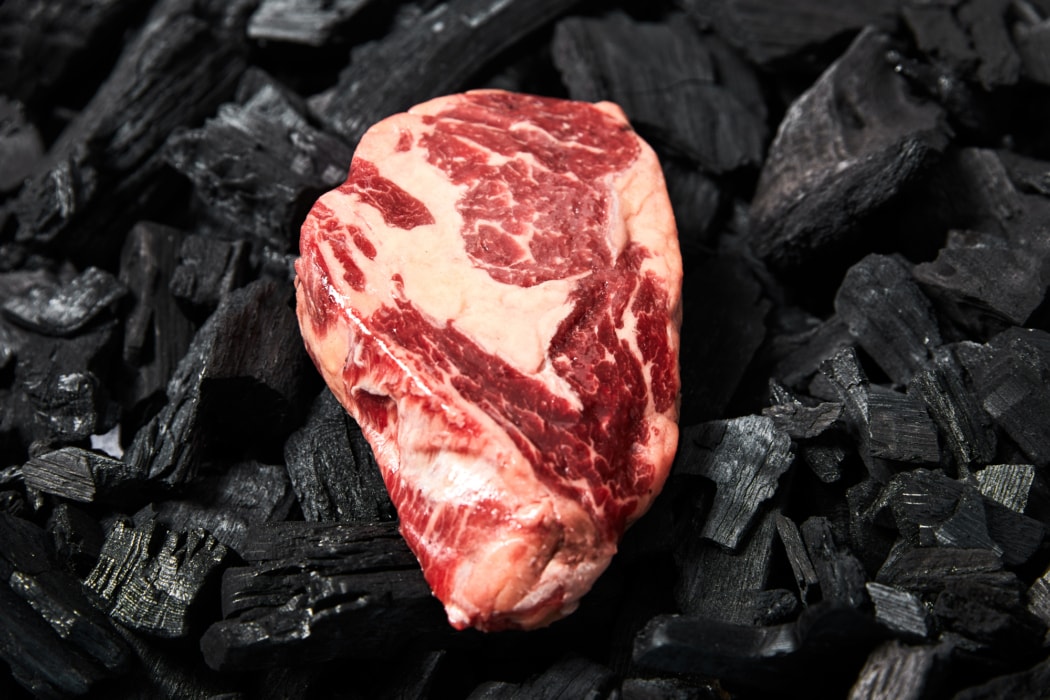
Carnivore FAQ: Health & Supplements
Does Carnivore Diet Increase Testosterone?
Some research suggests that eating a lot of fat and protein while on a carnivore diet may slightly increase your testosterone levels. However, this amount is insufficient for any noticeable changes in metabolism, libido, body weight, or muscle building.
Can Carnivore Diet Help Psoriasis?
By completely eliminating plant non-protein amino acids, the carnivore anti-inflammatory diet can help treat psoriasis and alleviate its symptoms [1]. In addition, zero carb eliminates the main triggers of psoriasis in meat eaters, so it can be useful as part of a complex treatment.
Can Carnivore Diet Cause High Blood Pressure?
In some cases, the carnivore diet may cause a slight increase in blood pressure. It is due to the increased sodium content in meat and other animal products. If you are prone to high blood pressure, you should control it on the zero carb diet.
Can Carnivore Diet Help Osteoarthritis?
Carnivore diet may reduce the symptoms of osteoarthritis by reducing chronic inflammation in general. In addition, this diet is rich in beneficial Omega-3 acids, which help reduce the symptoms of osteoarthritis and are part of a complex treatment. Also, carnivore helps in weight loss and maintaining a healthy weight. Excess weight and obesity are known to be risk factors for osteoarthritis.
Does Carnivore Diet Help MS?
At the moment, several U.S. studies show the possible positive impact of an animal-based diet on various autoimmune diseases. It also applies to multiple sclerosis [2]. A carbohydrate-free diet has been shown to help MS patients improve their quality of life.
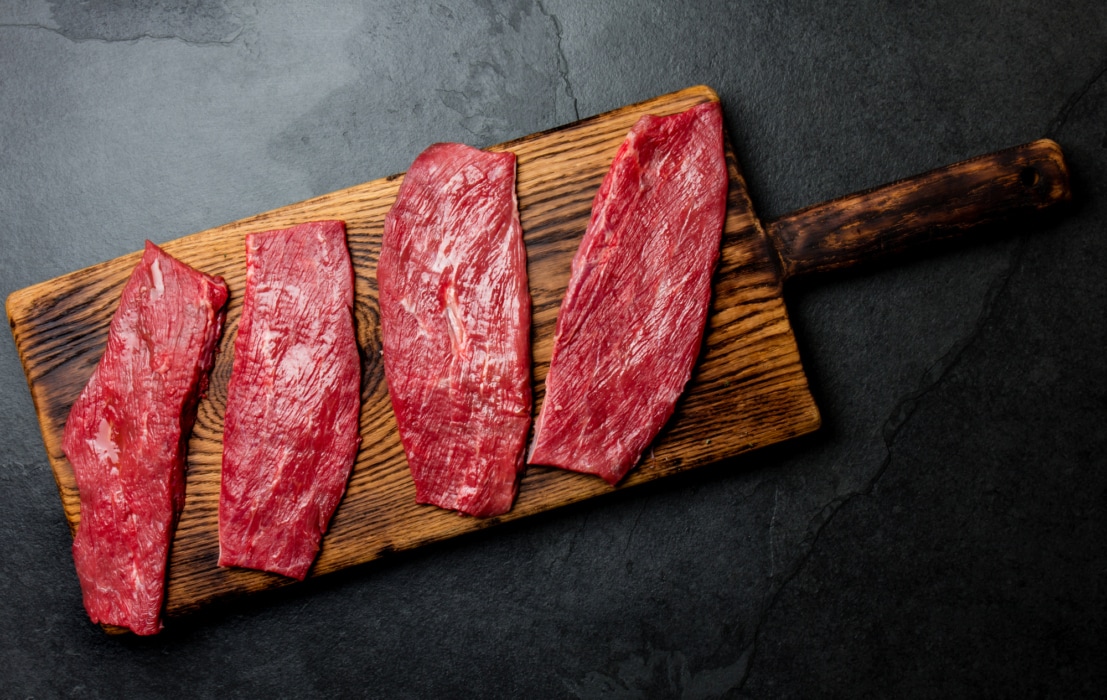
Why Do I Pee So Much on the Carnivore Diet?
Most people frequently pee on low-carb diets, including keto and carnivore. It is due to the fact that usually, carboHYDRATES, or rather glycogen, retain water in the body. By getting rid of carbohydrates and glycogen stores, your body loses a lot of fluid, which is why you pee so often. It mainly happens during the adjustment period, and you can add some electrolytes so you do not feel weak.
Does Carnivore Diet Kill Parasites?
There is currently no correlative study to support that the carnivore diet kills parasites. However, it may be beneficial. The fact is that healthy recommendations for getting rid of parasites include the elimination of cereals, fruits, and all foods containing sugar. Since the carnivore diet eliminates all carbohydrates, it can be helpful in controlling parasites.
Can Carnivore Diet Help With Migraines?
Some studies show that the keto diet and the carnivore diet can prevent or reduce the symptoms of chronic migraines [3] by removing carbohydrates from the diet. However, some people may experience migraines while on the carnivore diet as part of the adaptation process to using fat for fuel.
1000-Calorie Diet: Weight Loss Tool or Health Hazard?
Why Do I Feel Nauseous on a Carnivore Diet?
One of the side effects of adapting to the carnivore diet is nausea and heaviness in the stomach. Usually, this condition does not happen to everyone and passes in 1-2 weeks when your body adapts to eating fats. It may result from a change in your digestion and eating too much or too little. Over time, you will find your norm and eliminate these symptoms.
Will Carnivore Diet Lower Triglycerides?
Yes, the carnivore diet can lower cholesterol and triglyceride levels if you choose clean whole foods and avoid junk food and processed meats containing excess sodium. In addition, the healthy fats and Omega-3 fatty acids on your carnivore menu work to lower triglyceride levels.
Does Carnivore Diet Cause Heart Disease?
In some cases, the carnivore diet may increase the risk of heart disease. The reason for this is the consumption of processed red meat and fatty foods of animal origin, rich in sodium, which can provoke an increase in cholesterol levels [4]. Therefore, you should control your cholesterol levels on the zero carb diet and only eat whole foods if you are prone to any cardiovascular disease.
Can Carnivore Diet Help With Sleep?
The zero carb diet, like the classic keto diet, can help to cope with sleep disorders [5]. You may experience mild insomnia during the adaptation process, but your sleep will be healthier after it. Those who practice carnivore for a long time report that they need less time to fully sleep and recover. The fact is that food of animal origin contains a large amount of melatonin – a substance responsible for your recovery and healthy sleep cycles.
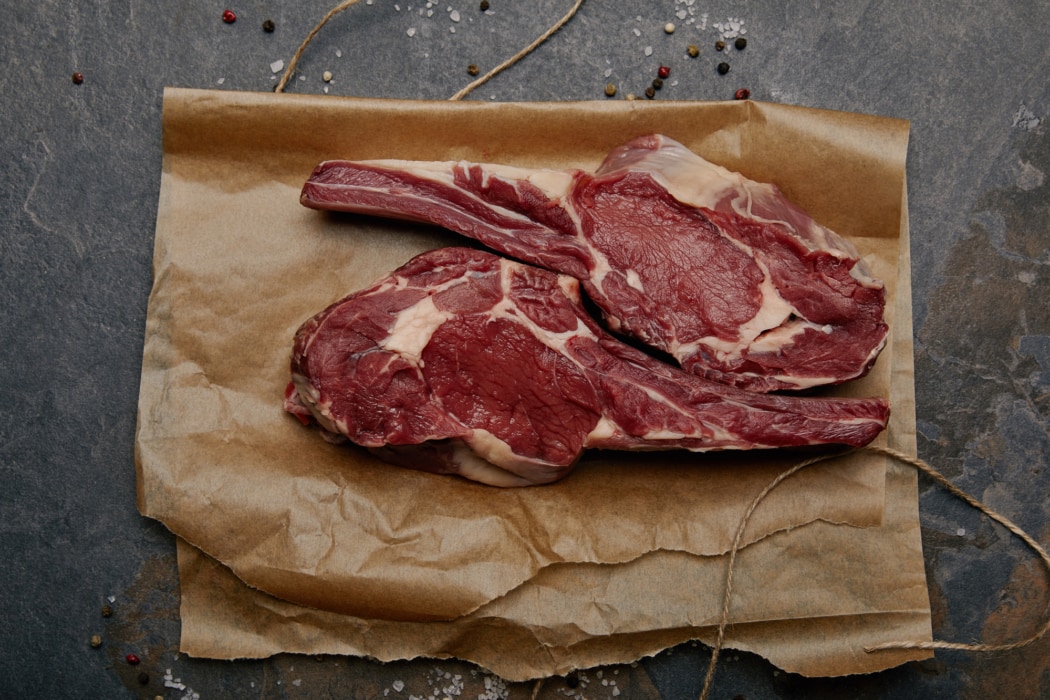
Can the Carnivore Diet Help With IBS?
Following a carnivore diet can help reduce symptoms or get rid of IBS [6]. Often this disorder is provoked by various plant foods, which the carnivore diet completely eliminates. Without plant-based foods, your intestines and gut microbiome gradually regenerate to a healthy state, eliminating the need to constantly process harder-to-digest foods.
Will Carnivore Diet Lower Blood Pressure?
Research is different. Some claim that the carnivore diet can eliminate health problems such as high blood pressure and high cholesterol levels. At the same time, other studies show that daily consumption of red meat rich in sodium increases blood pressure levels. You should avoid processed meats and consult with your doctor regarding your personal condition.
Can Carnivore Diet Cause Kidney Stones?
The low carbohydrate diet is safe for the kidneys when properly maintained in proportions of fats to proteins (1.5-2 to 1). However, if you ignore healthy fats and eat too much protein, your kidneys get overworked, which can lead to kidney stones [7].
Why Do You Poop Less on Carnivore Diet?
Often people complain that they poop very little while on a carnivore diet. But this is absolutely normal. Our body processes food of animal origin almost completely, leaving very little waste leftover. Also, the carnivore diet does not contain insoluble fiber, which is excreted from your body without being digested.
Keto Eggplant Lasagna: Tasty, Low-Carb and Quick Recipe
How Long Does Diarrhea Last on Carnivore Diet?
Diarrhea is not necessarily a symptom of the carnivore diet. However, some people experience it during the transition period due to the drastic fiber restriction and high amount of fats in the diet. Digestive problems can last for about one to two weeks. You can help your digestion by taking probiotics.
Can Carnivore Diet Help With Acne?
The carnivore diet is great for acne by reducing its appearance on the skin [8]. The fact is that the zero-carb diet can reduce chronic inflammation, but it also contains a huge amount of vitamins and minerals that work for the health of your skin. These are mainly zinc (beef, turkey, seafood), vitamin A (beef and chicken liver), DHA (oily fish and seafood), and vitamin E (fish and seafood).
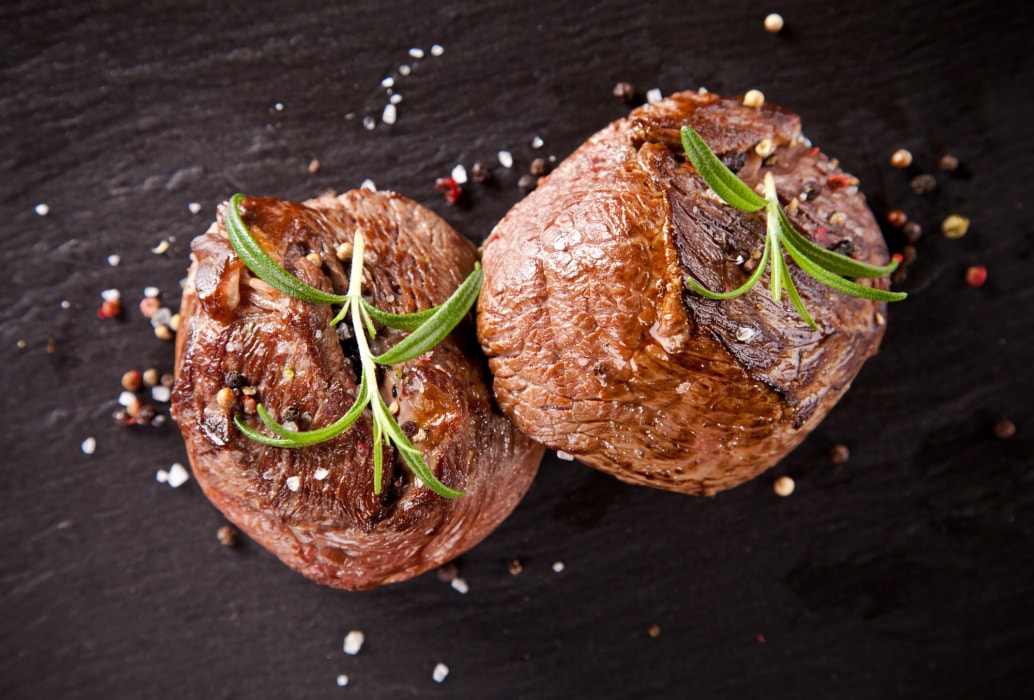
Is the Carnivore Diet Good for Your Heart?
For a long time, red meat was considered dangerous for heart health, and all doctors advised to avoid it if you have heart disease. However, new research disputes this claim, showing that red meat is not as dangerous and bad for the heart alone as when combined with processed foods such as trans fats, high salt content, and carbohydrates. Thus, if you eat healthy whole foods, you are unlikely to harm your heart.
Can a Carnivore Diet Help With Hypothyroidism?
Eating animal foods can be very beneficial in alleviating hypothyroidism due to their high essential nutrients content. Animal foods contain iron, selenium, zinc, and B vitamins in large quantities. All these elements are very beneficial for the health of the thyroid gland because they help increase the sensitivity of its hormones.
Can Carnivore Diet Cause Gout?
Studies show that excess animal protein in the diet can cause gout, while moderate consumption of purine-rich protein foods does not induce gout [9]. It means that carnivore does not increase the risks of gout with the right proportion of fat to protein (1.5-2 to 1).
Keto and Gut Health: Do You Need Probiotics on High-Fat Diet?
Can You Get Scurvy on Carnivore Diet?
Vitamin C deficiency often scares people who want to try carnivore because this vitamin is mainly found in plant-based foods. However, you can get enough vitamin C from chicken breast and liver, pork, or beef kidneys and liver, as well as from fish roe, eggs, and dairy foods.
Can Carnivore Diet Help Depression?
Low-carb diets such as keto or carnivore help improve mental health and prevent and reduce symptoms of depression and anxiety. The fact is that animal foods contain many amino acids that help produce the neurotransmitters responsible for preventing depression.
Does Carnivore Diet Cause Constipation?
Sometimes you may experience constipation while adjusting to the carnivore diet. It is due to the severe limitation of plant fiber, which usually fills our stools with mass and water. If you are experiencing constipation, add a little more healthy fat to your diet, and the problem will disappear. However, excess fat can lead to diarrhea during the adaptation phase, so find your balance for healthy digestion.
Can Carnivore Diet Help PCOS?
The high content of Omega-3 fatty acids and amino acids in the carnivore diet positively affects PCOS [10]. In addition, you need to know that pure, whole, unprocessed food during carnivore has a positive effect on PCOS, while processed meats full of trans fats and salt can worsen your condition.
Can You Take Supplements on the Carnivore Diet?
In general, you can take some supplements while on a carnivore diet. However, you need to make sure that it does not contain added sugars and does not interrupt blood sugar regulation or cause glucose formation in your body.
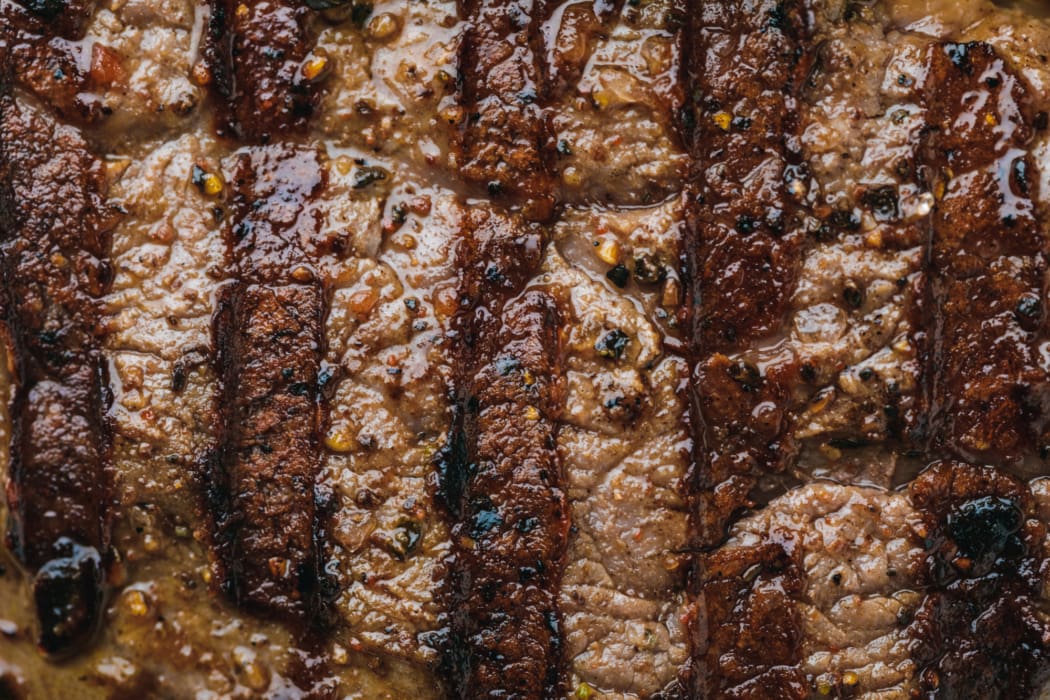
What Supplements Do I Need on Carnivore Diet?
You can get everything you need from different parts of the animal. However, if you want to take supplements, then you can opt for zero carbs pre-workout options, vitamins, creatine, proteins, probiotics, and electrolytes. You should also avoid plant-based supplements if your goal is a pure carnivore diet.
Can You Take Pre Workout on Carnivore Diet?
You can take pre-workout as long as it is a zero carb. You can try coffee with butter or MCT oil caffeine capsules to boost your energy before your workout. Electrolyte deficiency can lead to a lack of endurance. Try taking magnesium, potassium, and sodium before your workouts.
Keto Bodybuilding: How to Build Muscle Without Carbs?
Can You Take Vitamins on Carnivore Diet?
Yes, you can take any vitamins while on the carnivore diet. Multivitamins are an excellent choice to make up for possible nutrient deficiencies on the zero carb diet. Make sure the vitamins do not contain carbohydrates and plant-based ingredients like fiber, etc.
Can You Take Creatine on Carnivore Diet?
You can take creatine on the carnivore diet if you are doing intense workouts. It will help your muscles work better and produce more extreme results. Try to choose unflavored options to avoid extra carbs and plant-based components.
Can You Take Probiotics on Carnivore Diet?
You can take probiotics on a zero carb diet, but make sure it’s necessary. Probiotics can help you in the first month of the transition phase if you are experiencing any digestive problems (constipation, bloating, diarrhea, etc.).
Can You Take Protein Powder on a Carnivore Diet?
You should avoid protein powder during the carnivore diet. Firstly, it is processed food, while the carnivore diet prefers whole foods. Also, protein powder may contain carbs and should not be consumed with foods of animal origin. You don’t have to worry about protein during carnivore – you get enough of it anyway.
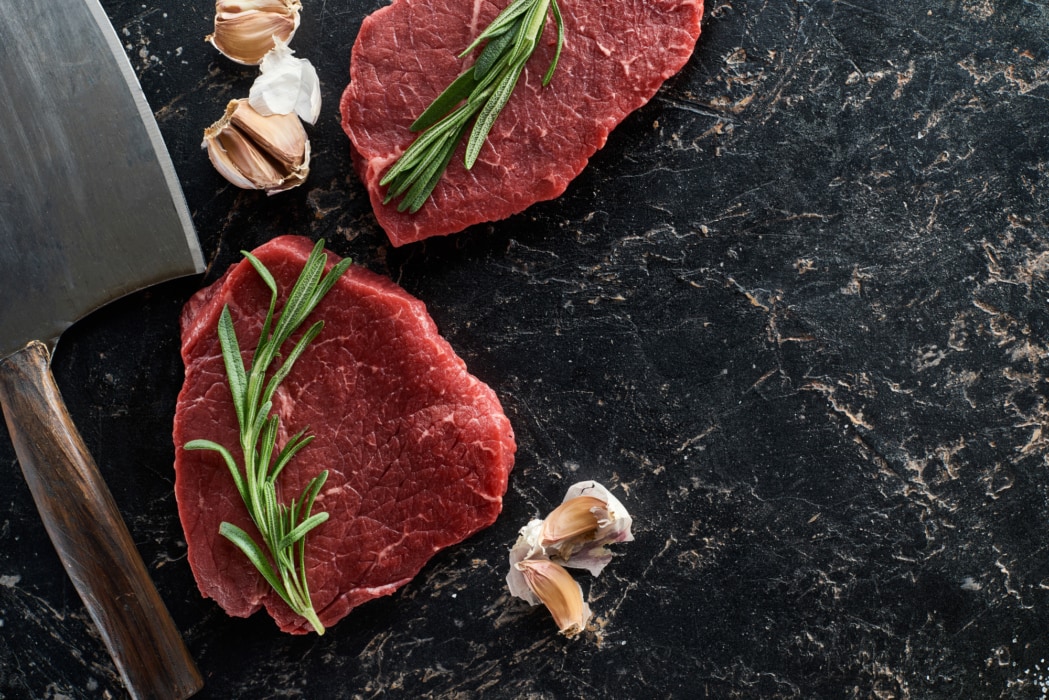
Can You Have Protein Shakes on Carnivore Diet?
You cannot consume protein shakes while on the carnivore diet. Most of the ingredients in these drinks are plant-based processed ingredients that go against all the principles of a carnivore diet. In addition, these drinks are non-zero carb and contain varying amounts of carbs, including synthetic carbs and natural sugars.
Can You Take BCAAs on Carnivore Diet?
Taking too much BCAA can trigger gluconeogenesis. It is the process by which your body makes glucose from amino acids. In addition, most BCAA supplements contain added carbs and flavors. Therefore, BCAA is not the best option for a pure carnivore diet, as it is processed food.
11 Keto Supplements to Kickstart your Low-Carb Diet
Can You Take Fiber on Carnivore Diet?
You can take small amounts of insoluble fiber while on the carnivore diet. However, you should know that you do not need fiber on a carnivore diet, and there is no reason for you to add it to your zero carb diet. Pure carnivore does not encourage the addition of fiber.
Sources:
- Castaldo, G., Pagano, I., Grimaldi, M., Marino, C., Molettieri, P., Santoro, A., Stillitano, I., Romano, R., Montoro, P., D’Ursi, A. M., & Rastrelli, L. (2021). Effect of Very-Low-Calorie Ketogenic Diet on Psoriasis Patients: A Nuclear Magnetic Resonance-Based Metabolomic Study. Journal of proteome research, 20(3), 1509–1521. https://doi.org/10.1021/acs.jproteome.0c00646
- Storoni, M., & Plant, G. T. (2015). The Therapeutic Potential of the Ketogenic Diet in Treating Progressive Multiple Sclerosis. Multiple sclerosis international, 2015, 681289. https://doi.org/10.1155/2015/681289
- Di Lorenzo, C., Ballerini, G., Barbanti, P., Bernardini, A., D’Arrigo, G., Egeo, G., Frediani, F., Garbo, R., Pierangeli, G., Prudenzano, M. P., Rebaudengo, N., Semeraro, G., Sirianni, G., Valente, M., Coppola, G., Cervenka, M. C., & Spera, G. (2021). Applications of Ketogenic Diets in Patients with Headache: Clinical Recommendations. Nutrients, 13(7), 2307. https://doi.org/10.3390/nu13072307
- Medeiros, G., Azevedo, K., Mesquita, G., Lima, S., Silva, D., Pimenta, I., Gonçalves, A., Lyra, C. O., & Piuvezam, G. (2019). Red meat consumption, risk of incidence of cardiovascular disease and cardiovascular mortality, and the dose-response effect: Protocol for a systematic review and meta-analysis of longitudinal cohort studies. Medicine, 98(38), e17271. https://doi.org/10.1097/MD.0000000000017271
- Afaghi A, O’Connor H, Chow CM. Acute effects of the very low carbohydrate diet on sleep indices. Nutr Neurosci. 2008 Aug;11(4):146-54. https://pubmed.ncbi.nlm.nih.gov/18681982/ PMID: 18681982.
- Chimienti, G., Orlando, A., Lezza, A., D’Attoma, B., Notarnicola, M., Gigante, I., Pesce, V., & Russo, F. (2021). The Ketogenic Diet Reduces the Harmful Effects of Stress on Gut Mitochondrial Biogenesis in a Rat Model of Irritable Bowel Syndrome. International journal of molecular sciences, 22(7), 3498. https://doi.org/10.3390/ijms22073498
- Mitchell, N. S., Scialla, J. J., & Yancy, W. S., Jr (2020). Are low-carbohydrate diets safe in diabetic and nondiabetic chronic kidney disease?. Annals of the New York Academy of Sciences, 1461(1), 25–36. https://doi.org/10.1111/nyas.13997
- Melnik B. C. (2015). Linking diet to acne metabolomics, inflammation, and comedogenesis: an update. Clinical, cosmetic and investigational dermatology, 8, 371–388. https://doi.org/10.2147/CCID.S69135
- Gibson, T., Rodgers, A. V., Simmonds, H. A., Court-Brown, F., Todd, E., & Meilton, V. (1983). A controlled study of diet in patients with gout. Annals of the rheumatic diseases, 42(2), 123–127. https://doi.org/10.1136/ard.42.2.123
- Mavropoulos, J. C., Yancy, W. S., Hepburn, J., & Westman, E. C. (2005). The effects of a low-carbohydrate, ketogenic diet on the polycystic ovary syndrome: a pilot study. Nutrition & metabolism, 2, 35. https://doi.org/10.1186/1743-7075-2-35